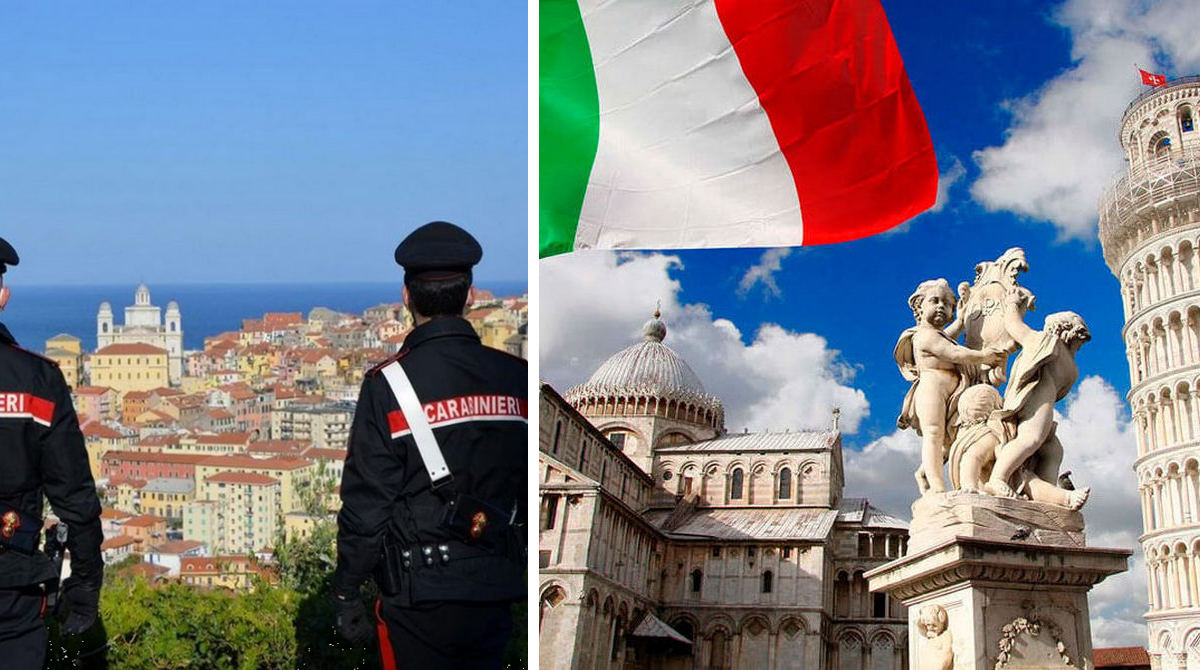The last few weeks have been particularly difficult for Italians and tourists vacationing in the Apennines: Italy has been hit by a series of catastrophic events – first floods, now the eruption of Mount Etna. The Schengenvisainfo portal has given cautionary advice to tourists traveling to Italy.
At the moment, an overview of the current situation in Italy is as follows: heavy rains, which led to massive flooding, caused the death of 14 people, and another 36 thousand residents of the Emilia-Romagna region were forced to leave their homes. Now Italy is affected by the active eruption of the Etna volcano, which disrupted air travel: flights were postponed or canceled in Catania – the largest city in the region, on the coast of which there are many hotels. Fortunately, there were no casualties, despite the strong emissions of molten lava.
These events are expected to affect one of the main tourist destinations in Europe as the summer season approaches. Italy has always attracted a huge number of tourists due to its rich cultural and historical heritage, but the COVID-19 pandemic and natural disasters have seriously affected the country’s tourism sector. However, recovery began last year, and the number of tourists increased by almost 40% compared to 2021. Let’s list some tips that will help tourists planning a trip to Italy not to fall into a trap.
First, avoid areas affected by floods and landslides. Due to landslides, it is recommended to avoid the Bologna Hills and the surrounding areas – part of the Emilia-Romagna region. In addition, Ravenna, a popular tourist city with mosaics from the Byzantine era, was badly affected by the flood: more than 27,000 people were evacuated. Some areas are also short of drinking water and food, local media have warned.
As for the Mount Etna eruption, British low-cost carrier EasyJet told the Independent that four flights between the UK and Italy were canceled due to the disaster, with one rescheduled for May 24. Fortunately, no injuries were reported, but due to the ash seen in the sky and on the runways of Catania airport, flights were suspended and rescheduled. In addition, many flights are delayed or diverted to nearby Comiso Airport.
Second, take care of health insurance. One of the key aspects to remember when traveling to Italy is having the right travel insurance. Such insurance provides travelers with protection against unexpected medical expenses in the event of an accident or hospitalization. It can also cover the costs of trip cancellation or other unforeseen interruptions.
In addition, with travel insurance, passengers can request a refund if their trip is canceled or postponed. In addition, it provides coverage for lost, delayed, or stolen luggage during travel. Therefore, it is recommended to purchase reliable travel insurance before going to Italy, especially in light of recent events, when flight disruptions are possible not only due to natural disasters but also due to strikes by aviation workers.
Many tourists planning their trips to Italy have expressed concern and doubt about their plans due to recent events. So, one of the British tourists shared his fears on social networks, noting that British Airways refuses to refund him about 1,800 euros for flights to Bologna. “At least eight people have died, and 13,000 people have been evacuated from the area due to flooding, but we still have to go there for vacation. My thoughts are with all those suffering in this region,” he wrote on his social media page.
And another traveler expressed his concerns about the cost of tickets and the lack of security when traveling to Bologna. He said that a few months ago he bought tickets for the morning of May 25, but now he sees that it is dangerous to travel because of the floods. His country does not use the euro, so the cost of traveling to Italy turned out to be significant for him. In the message, he wondered if it was worth risking his safety now.
Although travel insurance can provide tourists with a sense of security while traveling, airlines are not always obligated to compensate passengers for damages. However, there are cases when tourists have the right to compensation, for example, in the event of a flight cancellation.
Rights of passengers and obligations of airlines
If the flight is canceled due to the cancellation of another flight, the passenger is entitled to some compensation from the airline. In such situations, carriers are obliged to provide travelers with the following services:
- Sufficient amount of food and drink. In case of flight delay or cancellation, airlines usually provide passengers with food vouchers to provide them with basic needs.
- Alternative methods of communication. Airlines can also reimburse passengers for the cost of phone calls or provide them with other means of communication to ensure contact with family, friends, or employees.
- Accommodation. If a flight is canceled and tourists are rebooked for the next day, airlines usually provide accommodation in nearby tourist facilities so that passengers can spend the night comfortably and wait for the next available flight.
- Transport to the place of stay and back. In case of flight cancellation, airlines must also provide passengers with transportation to their place of stay or home, if the tourist can return at the stage of delay or cancellation.

